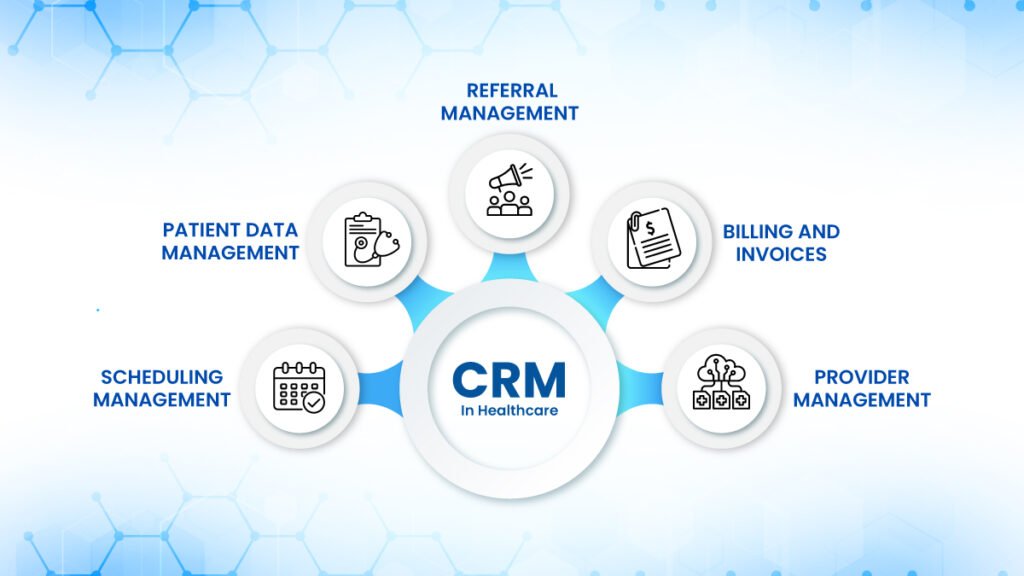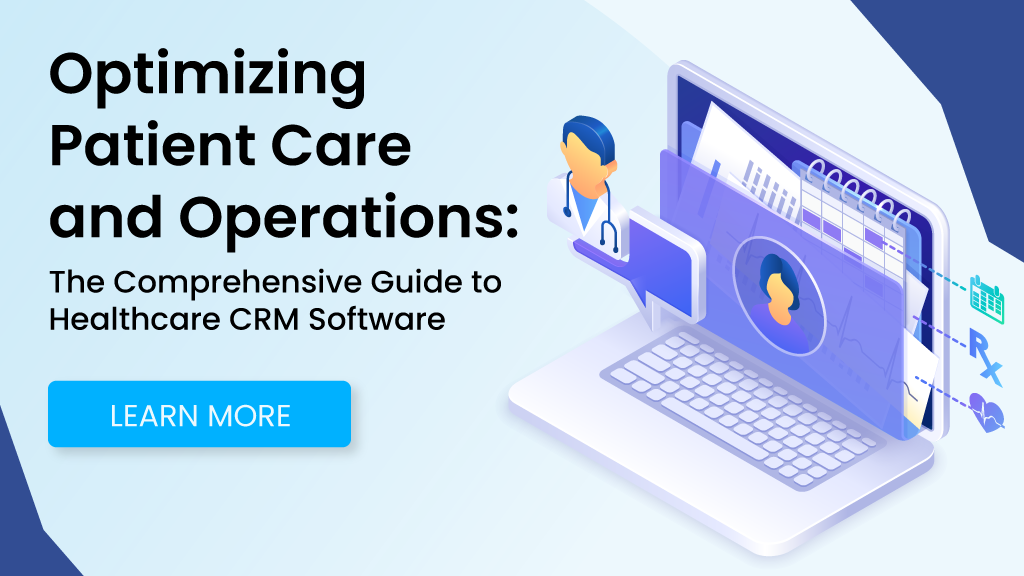What Is A Healthcare CRM?
A Health Service CRM (Customer Relationship Management) is a specialized software system designed specifically for the healthcare industry – tailored to manage patient relationships – coordinate scheduling, improve interactions, and streamline various aspects of the organization’s services such as patient care, manage patient data, enhance communications with providers, physicians, vendors and optimize operational efficiency within the healthcare organizations.
This CRM is not limited only to hospitality but also to medical services, providers, suppliers, financials, and other relevant divisions of the healthcare industry.

Key features and functionalities of a Healthcare CRM:
Healthcare CRM must control the accessibility of customer information and privacy-related issues such as laws and regulations to secure the health records of patients and also have other features such as:
•Streamlined Appointment Management: Enhancing Patient Scheduling Efficiency with Automated Reminder Systems.
•Referral Management: Tracking and managing patient referrals by vendors, to vendors, assigning to physicians, providers etc.
•Communication Tools: Facilitation of secure communication between healthcare providers and patients, including messaging or telehealth options.
•Task Automation: Automating routine administrative tasks to optimize workflow efficiency and reduce manual workload.
•Patient Management: Centralized storage and management of patient data, including demographic, medical history, appointments, billing and treatment plans.
The Most common benefit of CRM is its ability to handle coordinated solutions to multiple dependent problems from within a single user interface. E.g. Restrict access levels only to authorized employees, and also set specific data access or edits for customer records.
•Customer Service: You can assess the quality of customer service by observing interactions with the help desk. E.g. How is a simple query scheduling an appointment handled by the office desk?
The ticketing system’s Service Level Agreements (SLAs) streamline the process by categorizing incoming tickets according to urgency, delegating them to suitable staff members, and facilitating prompt resolutions, thus enhancing the overall effectiveness of the customer service management system.
•Billing and Payment Integration: Inclusion of billing and payment functionalities to streamline financial transactions such as claims, commissions, payments etc.
•Health Analytics and Reporting: Generating insights through analytics and reports on any operational performance such as team performance, SLAs, financial reporting etc.
•Compliance and Security Measures: Ensuring compliance with healthcare regulations (such as HIPAA in the United States) and maintaining data security and patient confidentiality.
Conclusion
A healthcare CRM must be able to handle the unique needs of organizations and scalability. Zoho CRM, adaptable for healthcare service providers, offers customizations and automated features aimed at enhancing patient care.
It facilitates better communication between healthcare providers and their patients, streamlines administrative duties, and significantly improves the overall delivery of healthcare services.
Contact us to learn more!


